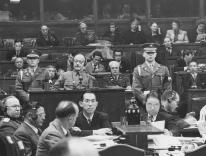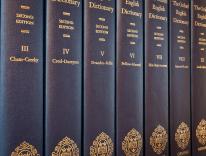Throughout an academic career of more than forty years, Stanley Hauerwas has been a lively commentator on Catholic ethics and ethicists. The results of this engagement are complex and controversial. From one angle, Hauerwas can come across as sharply critical, if not dismissive. For example, he has sharply questioned the coherence of “natural law” approaches to ethics, and he suspects that talk of “human rights,” so important in Catholic social teaching, betrays a corrupting allegiance to modern liberal individualism. Hauerwas has also challenged the usefulness of seeking “common ground” between Christians and non-Christians on the moral, political, and social issues of the day. He is critical of the sort of “public theology” practiced by figures such as David Hollenbach, Michael and Kenneth Himes, and Dennis McCann, for accommodating or subordinating Christian faith to the (inevitably idolatrous) requirements of the nation-state. He is equally skeptical of the turn, led by Margaret Farley, Lisa Sowle Cahill, and many others, toward a revision of Christian ethics in light of the experiences of women and the realities they disclose. In short, Hauerwas is barely within shouting distance of many contemporary Catholic methods and concerns (Hauerwas’s critics might say that his work only incites people to shout at one another anyway).
Hauerwas’s cautions about public theology and individualism are in my judgment germane, if perhaps overstated. On the other hand, appeals to natural law rightly understood, or at least to some analogue of “natural morality” that attends to who human creatures are and ought to be, are, I believe, a theological necessity. Hauerwas’s recovery of “natural theology” in With the Grain of the Universe, his Gifford Lectures, may indicate some such recognition. Along this line, War and the American Difference appears to appreciate and endorse the late Dominican philosopher Herbert McCabe’s version of a natural-law ethic, one that affirms a common biological and linguistic human nature but denies any fully formed “common morality.” For McCabe, and now maybe for Hauerwas, natural law is a legitimate and necessary eschatological category. The full discovery of that law, as governing the entire human family, lies ahead of us, as diverse human communities, including the church, deliberate in their particularity and with one another on the nature of the good. Whatever this development or advance in Hauerwas’s position, however, War and the American Difference continues to resist the idea of “human rights” for the reason mentioned above, among others.
From a different angle, Hauerwas’s appreciation for the virtue ethics of Thomas Aquinas, the witness of John Paul II as a critic of political liberalism, and the relation between worship and ethics have struck a more harmonious chord with Catholic moral approaches. In the volume under review, the author also offers interesting and fruitful discussions of political authority, the common good, and the mission of the church that stand in constructive relation to the Catholic philosopher Alasdair MacIntyre and theologians Karl Rahner and Fergus Kerr. But War and the American Difference centrally addresses themes that concern the nature of war, the viability of just-war theory, and the relevance of Christian communities committed to nonviolence. Here, too, Catholic folks committed to the idea of a “presumption against war” and the practices of “peacebuilding” may well take note; for on this front the book is a noteworthy and welcome achievement. Like many of Hauerwas’s volumes, it is composed of essays that, one by one, can fairly be said to stand alone. Allow me to draw out an argument that unites a number of them.
“It is my hope,” Hauerwas writes in the preface, “that this book will in some small way help us, Christian and non-Christian alike, to confront the reality of war.” Here “reality” has a double meaning. We need to confront the work that war really does in expressing and sustaining “the American difference”; and we are enjoined with respect to war to consider what is really going on in a world believed now to stand under the Lordship of Christ.
The American difference refers to a civil religion that appeals to, and brings into being, a community claiming to be “one nation under God.” Yet America’s God in this religion is identified quintessentially (and self-servingly) in “the providential establishment of a free people.” Hauerwas proposes that “only war can sustain our belief that we are a people set apart” in this sense. How so? Relying on Harry Stout’s “moral history” of the Civil War, he takes that conflict to provide the rationale for the American habit of waging wars without limits. By the end of the Civil War, a cultural and religious understanding emerged, according to which our “messianic destiny” of attaining a “new birth of freedom” through the abolition of slavery and the vindication of democratic equality for the world required a “massive blood sacrifice on the national altar.” And so this “sacrificial system” must continue. Lincoln’s Gettsysburg Address, with its call that “we take increased devotion to that cause for which they gave their last full measure of devotion,” has terrifying resonance across the generations. “Americans think they must go to war to ensure that those who died in our past wars did not die in vain.
Thus American wars are justified as a ‘war to end all wars’ or ‘to make the world safe for democracy’ or for ‘unconditional surrender’ or ‘freedom’.... Wars, American wars, must be wars in which the sacrifices of those doing the dying and the killing have redemptive purpose and justification.” Given this reality, attempts to offer warrants and prescribe limits in terms of just-war theory “cannot help but be ideological mystifications.” One may respond, of course, that a just-war theory properly situated within a Christian community sensitive to both the sin of national idolatry and the rank ugliness of war can expose what war is rather than mask it.
Christians believe “a sacrifice has been made that has brought an end to the sacrifice of war.” The church, on this view, is the “alternative to war.” Hence what is really going on is that, since Jesus Christ is Lord, war, like sin, generally has no future. In all its horror, it represents nothing other than the desperate and ultimately futile resistance of an enemy whose defeat is certain. In faithful witness to God’s sovereign triumph over sin and death through Cross and Resurrection, Christians “cannot imagine not living nonviolently,” and the world in and with which the church lives “is not condemned to live violently.” The church, Christians believe, “is what the world can be.”
What is the upshot? First, Christians may and must recover their own “language of peace.” “Until Christians understand that loving Christ means refusing to kill those he died for, until we recover our own language of peace, there is little hope that we will be able to engage others in conversation without it perpetuating a shallow discourse that leaves us all speechless.” This effort includes coming to a perspective analogous to our current view of slavery. As Hauerwas and Enda McDonagh write in “Appeal to Abolish War”:
We are well aware that slavery still exists in multiple disguises, but no one thinks aloud that slavery can be justified.... We know that what we call war will continue in various guises, but we trust that in the near future at least no Christian will be tempted to think that when they say “war” they are affirming the necessity of wars or giving them justification.
Needless to say, Christian proponents of just-war theory will disagree. Then again, see above for Hauerwas’s reservations about just-war theory.
Second, Hauerwas follows the late John Howard Yoder’s stress on the Christian practice of mutual correction as described in Matthew 18:15–20. “Binding and loosing” presumes that Christians cannot kill one another, and offers to the world a paradigm for honestly confronting and resolving conflicts through (Yoder’s words) “truth-finding and community-building.” Hauerwas has made this kind of point before, and one might wish for more in the way of what he himself would call “material specification.” Yet it is possible that what appears here to be a weakness is also a strength, since what he recommends would, if taken seriously, encourage activities of imagination and discernment that help us more concretely to understand and embody a nonviolent way of life faithful to the triumph of the Lamb.
Please email comments to [email protected] and join the conversation on our Facebook page.
Share
Previous Story
Joe Cunneen
Next Story
Care Package


